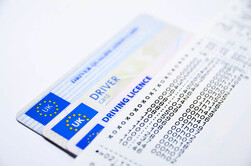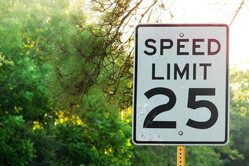- Home
-
News
-
Latest News
- Cadillac honours Mario Andretti
- Honda reveals vibration issue
- F1 Q4 revenue sees 14% year on year increase
- 5 Straight Zones for Melbourne
- Red Bull extends Oracle partnership
- New head of motorsport at Pirelli
- Ecclestone predicts 2026 regulations chaos
- Racing Bulls unveil Fuel Cell plant in Faenza
- Marko and Minztlaff behind sacking, claims Horner
- More News
-
-
Drivers
-
Current Drivers
- Lando Norris
- Max Verstappen
- Gabriel Bortoleto
- Isack Hadjar
- Pierre Gasly
- Sergio Perez
- Andrea Kimi Antonelli
- Fernando Alonso
- Charles Leclerc
- Lance Stroll
- Alexander Albon
- Nico Hulkenberg
- Liam Lawson
- Esteban Ocon
- Arvid Lindblad
- Franco Colapinto
- Lewis Hamilton
- Carlos Sainz
- George Russell
- Valtteri Bottas
- Oscar Piastri
- Oliver Bearman
- Test/Reserve Drivers
-
-
Teams
-
Current Teams
- McLaren Formula 1 Team
- Mercedes-AMG Petronas Formula One Team
- Oracle Red Bull Racing
- Scuderia Ferrari HP
- Atlassian Williams F1 Team
- Visa Cash App Racing Bulls Formula One Team
- Aston Martin Aramco Formula F1 Team
- TGR Haas F1 Team
- Audi Revolut F1 Team
- BWT Alpine F1 Team
- Cadillac Formula 1 Team
-
-
Tracks
-
Current Circuits
- Melbourne (Australia)
- Shanghai (China)
- Suzuka (Japan)
- Sakhir (Bahrain)
- Jeddah (Saudi Arabia)
- Miami (USA)
- Montreal (Canada)
- Monaco (Monaco)
- Barcelona (Spain)
- Red Bull Ring (Austria)
- Silverstone (UK)
- Spa-Francorchamps (Belgium)
- Budapest (Hungary)
- Zandvoort (Netherlands)
- Monza (Italy)
- Madring (Spain)
- Baku (Azerbaijan)
- Singapore (Singapore)
- Austin (USA)
- Mexico City (Mexico)
- Interlagos (Brazil)
- Las Vegas (USA)
- Losail (Qatar)
- Abu Dhabi (UAE)
-
- Seasons
-
Pictures
-
Latest Galleries
- 2026 Bahrain Test 20 February
- 2026 Bahrain Test 19 February
- 2026 Bahrain Test 18 February
- 2026 Bahrain Test 13 February
- 2026 Bahrain Test 12 February
- 2026 Bahrain Test 11 February
- 2026 Launch - Aston Martin
- 2026 Launch - McLaren MCL40
- 2026 Launch - Cadillac
- 2026 Launch - Williams FW48
-
Gallery Categories
- 2026 Season
- F1 Testing
- 2025 Season
- All galleries
-
- Stats
- JOHNNYBET






















